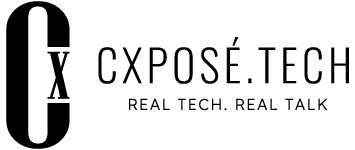
The Doctor-Patient Dynamic Redefined in Modern Healthcare
AI-driven preventive care is revolutionising healthcare by shifting the focus from treating diseases after they occur to predicting and preventing illnesses before they manifest. This transition is significantly altering the traditional doctor-patient relationship in several ways:
From Reactive to Proactive Care Traditionally, healthcare has been reactive. Patients seek medical attention only when symptoms arise. AI changes this by continuously monitoring health data, flagging potential risks, and enabling early interventions. This approach fosters a more dynamic, ongoing relationship between doctors and patients rather than episodic interactions.
Empowered Patients and Shared Decision-Making AI provides patients with real-time health data through wearable devices, mobile apps, and predictive analytics. This increases patient engagement and encourages shared decision-making, where patients take a more active role in their health rather than relying solely on physicians’ directives.
Personalised Treatment Plans AI can analyse large datasets to generate personalised health recommendations, tailoring preventive strategies based on an individual’s genetic profile, lifestyle, and medical history. This requires physicians to interpret and explain AI-driven insights to patients clearly.
As AI takes a more significant role in healthcare, clinicians must develop new communication skills, which includes:
Data Interpretation and Explanation Physicians must be able to translate complex AI-generated data into simple, actionable advice that patients can understand.
Digital Literacy and AI Proficiency Clinicians should develop a strong understanding of AI tools, ensuring they use them effectively while addressing concerns about accuracy, privacy, and reliability.
Empathy and Patient-Centred Communication Despite AI’s capabilities, maintaining the human touch is crucial. Physicians must reassure patients that AI is a tool for support, not a replacement for human expertise.
Trust and Ethical Conversations AI raises ethical concerns about data privacy and decision-making. Doctors must guide patients on how their data is used and ensure informed consent.
By adapting to these changes, clinicians can foster a more collaborative, patient-centric healthcare environment where AI enhances- rather than replaces the doctor-patient relationship.
AI Tools to Create Active Healthcare Participants
AI tools are transforming patients from passive recipients of healthcare to active participants in managing their health. This shift is crucial because an informed and engaged patient is more likely to adopt healthy behaviours, adhere to treatment plans, and seek early intervention when needed.
AI enhances patient engagement in several ways:
Continuous Health Monitoring Wearable devices (e.g., smartwatches, biosensors) track key health metrics like heart rate, glucose levels, and sleep patterns, alerting users and their doctors to potential risks before symptoms appear.
Personalised Health Recommendations AI-powered health apps analyse individual health data and provide tailored advice on diet, exercise, medication adherence, and mental well-being.
Telemedicine and AI Chatbots AI-driven chatbots and virtual assistants provide instant responses to health-related queries, offering 24/7 support for patients, especially those in remote areas.
Predictive Analytics for Preventive Care AI identifies patterns in patient data to predict disease risks and recommend timely interventions, preventing conditions such as diabetes, hypertension, and cardiovascular diseases.
Educating patients about AI-driven healthcare technologies is critical because:
Better Health Outcomes When patients understand AI-generated insights, they can take proactive steps to improve their health, such as adjusting their lifestyle, recognising early warning signs, and seeking medical attention at the right time.
Overcoming AI Hesitancy: Many patients may be sceptical or fearful of AI in healthcare. Education can demystify AI, addressing concerns about privacy, accuracy, and reliability.
Reducing Healthcare Costs and System Burden: When patients manage their health proactively with AI tools, it reduces unnecessary doctor visits, hospitalisations, and healthcare costs.
To maximise AI’s benefits, healthcare providers should integrate AI education into routine consultations, empowering patients to use these tools effectively for better health management.
The AI Detection Revolution
AI has the potential to revolutionise early disease detection by identifying subtle patterns in medical data that might be overlooked by traditional diagnostic methods. Some of the most promising areas where AI can significantly impact early screening and prevention include:
Oncology (Cancer Detection and Prevention)
- AI-powered imaging systems (e.g., mammography analysis for breast cancer, pap smears for cervical cancer) can detect early-stage malignancies with greater accuracy than human radiologists.
- AI-driven genomic analysis can identify genetic predispositions to cancers, enabling preventive measures such as lifestyle modifications or increased surveillance.
Cardiology (Heart Disease Prevention)
- AI can analyse ECGs, detect arrhythmias, and assess cardiovascular risk factors like cholesterol levels and blood pressure trends.
- AI-powered predictive models help identify individuals at high risk of heart attacks and strokes, prompting early lifestyle or medical interventions.
Infectious Diseases (HIV, Tuberculosis, Viral Outbreaks, etc.)
- AI-driven surveillance systems predict disease outbreaks by analysing epidemiological data.
- AI models assist in identifying high-risk individuals for infectious diseases, enabling targeted prevention and early treatment strategies.
Neurology (Alzheimer’s and Parkinson’s Disease)
- AI-based cognitive assessments and brain imaging can detect early signs of neurodegenerative diseases, allowing for early intervention strategies such as cognitive therapy or lifestyle changes.
Diabetes and Metabolic Disorders
- AI models predict diabetes risk based on lifestyle, genetics, and metabolic indicators, encouraging early dietary and exercise interventions.
By integrating AI into preventive healthcare, we can shift the paradigm from disease treatment to disease prevention, significantly improving public health outcomes.
Finding Harmony Between AI and Clinical Experience
AI’s data-driven recommendations sometimes differ from a physician’s clinical judgment, leading to potential conflicts. The best approach to reconciling AI insights with traditional medical expertise is through collaborative decision-making and evidence-based validation.
Key strategies to bridge the gap include:
Human Oversight and AI as a Support Tool: AI should augment not replace clinical judgment. Physicians should critically evaluate AI recommendations and use them as an additional layer of decision-making support.
Interdisciplinary Review and Validation: When AI suggests a novel preventive approach, it should be reviewed by experts across various medical specialties, ensuring that it aligns with established medical knowledge and ethical guidelines.
Continuous AI Learning and Model Improvement: AI models should be designed to incorporate real-world patient outcomes, continuously refining their recommendations based on clinical feedback.
Patient-Centred Decision-Making: Physicians should discuss AI-driven recommendations with patients, explaining potential benefits and risks. Patients should have a say in their care, fostering a balanced approach that considers both AI insights and human expertise.
Ethical and Regulatory Frameworks: AI integration into healthcare should be governed by ethical guidelines and medical regulations to ensure safety, transparency, and accountability.
By embracing AI while maintaining clinical oversight, healthcare professionals can leverage its potential to enhance, rather than disrupt, traditional medical practices.


 How AI Will Redefine the Doctor’s Role in Healthcare
How AI Will Redefine the Doctor’s Role in Healthcare AI Tools Can Enhance Doctor-Patient Relationships
AI Tools Can Enhance Doctor-Patient Relationships


